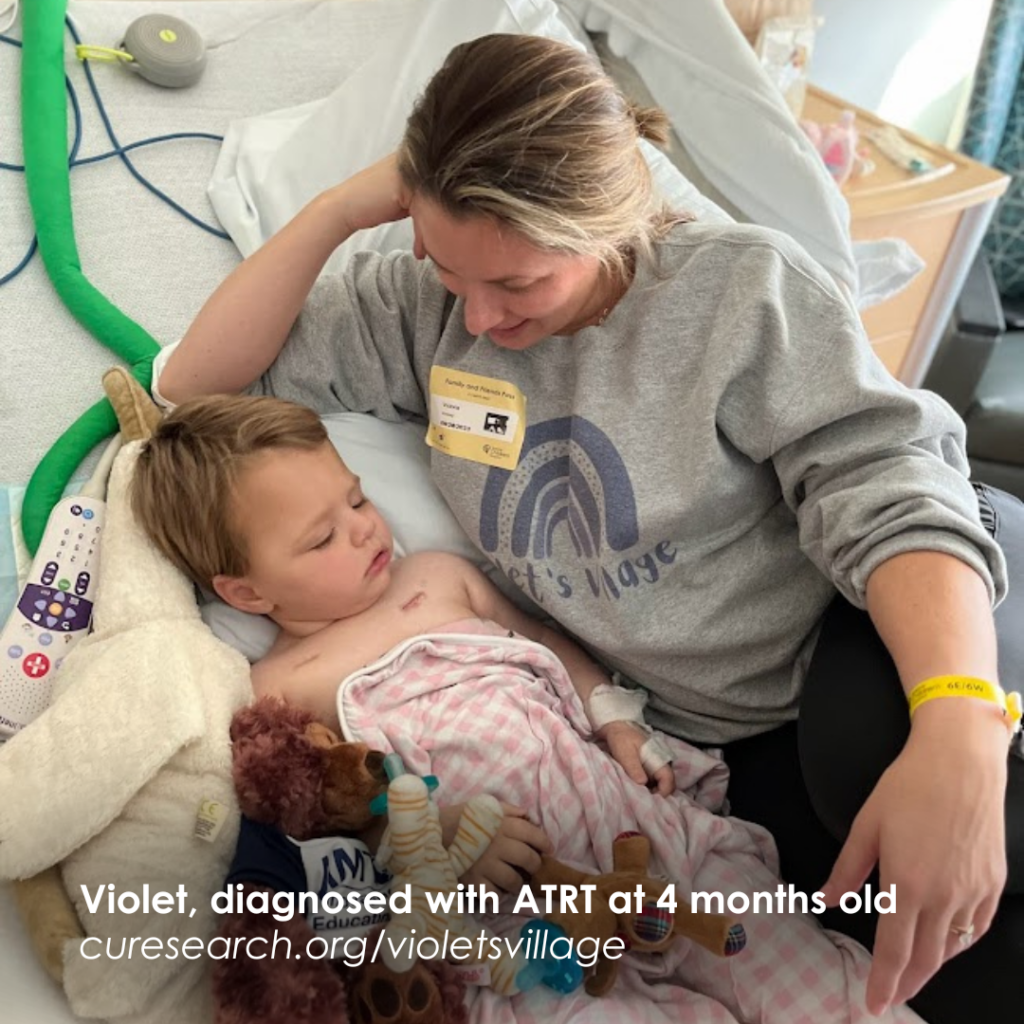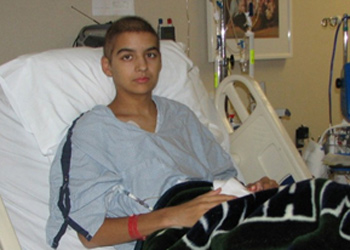
A Life-Changing Diagnosis
At just three years old, most toddlers are learning to run, jump, and explore the world with unbridled curiosity. But for some, these precious milestones are interrupted by a devastating diagnosis: atypical teratoid rhabdoid tumor (ATRT), a rare and aggressive brain cancer that often strikes the youngest and most vulnerable among us, affecting infants and toddlers. For families facing this heartbreaking reality, the future feels uncertain.
These tumors typically form in critical areas of the brain like the cerebellum, which controls movement and balance, or the brainstem, which regulates essential body functions. Current treatment options—surgery and chemotherapy—are not only grueling but also offer limited hope.
“Children with ATRT don’t have the same opportunities to benefit from cutting-edge, targeted treatments that are available for other cancers. We urgently need to change that narrative,” said Dr. Paisley Myers, Director of Research and Programs at CureSearch.
We’re working to ensure that every child diagnosed with cancer has a safe and effective treatment option. That’s why we are proud to fund the groundbreaking work of Dr. John Prensner at the University of Michigan through our 2025 Young Investigator Award. With his deep expertise in pediatric oncology and an unwavering passion for discovery, Dr. Prensner is on a mission to give children with ATRT a fighting chance.
A New Frontier in Pediatric Cancer Research

2025 CureSearch Young Investigator Awardee
Unlike many cancers that have identifiable genetic mutations for scientists to target, ATRT operates in the shadows. Its lack of clear vulnerabilities has made it one of the most challenging pediatric cancers to treat. But Dr. Prensner is determined to shine a light on the hidden mechanisms that drive these tumors by exploring something entirely new.
He’s studying tiny pieces of DNA, once thought to be unimportant, that might actually hold the key to treating this cancer. His research focuses on small open reading frames (sORFs)—tiny, overlooked segments of DNA. Once dismissed as “junk,” sORFs are now recognized for their ability to produce microproteins that may play critical roles in cell growth and survival.
“My hope is that this work will lead to the discovery of new genes that inform the next phase of drug development for ATRT,” said Dr. Prensner. “This CureSearch award will be important for us to continue to develop a new understanding of the childhood cancer genome for ATRT.”
Dr. Prensner’s project is funded through a CureSearch Young Investigator Award, which aims to combat the loss of promising scientists from the field by providing financial support to investigators early in their research careers. As part of our growing co-funding model, the project is generously supported in part by the Jeff Gordon Children’s Foundation (JGCF) and Violet’s Village: The Violet Kenney Legacy Fund at CureSearch.
“JGCF is incredibly excited to partner with CureSearch and Violet’s Village to support Dr. Prensner’s project taking aim at ATRT,” said Susan Robinson, Executive Director for Jeff Gordon Children’s Foundation. “Brain tumors are the deadliest form of childhood cancer, so we’re eager to advance scientific knowledge and develop better therapeutics to improve outcomes for kids facing such a devastating diagnosis.”
Your support makes this groundbreaking work possible and brings hope to children and their families who need it most. Thank you!



